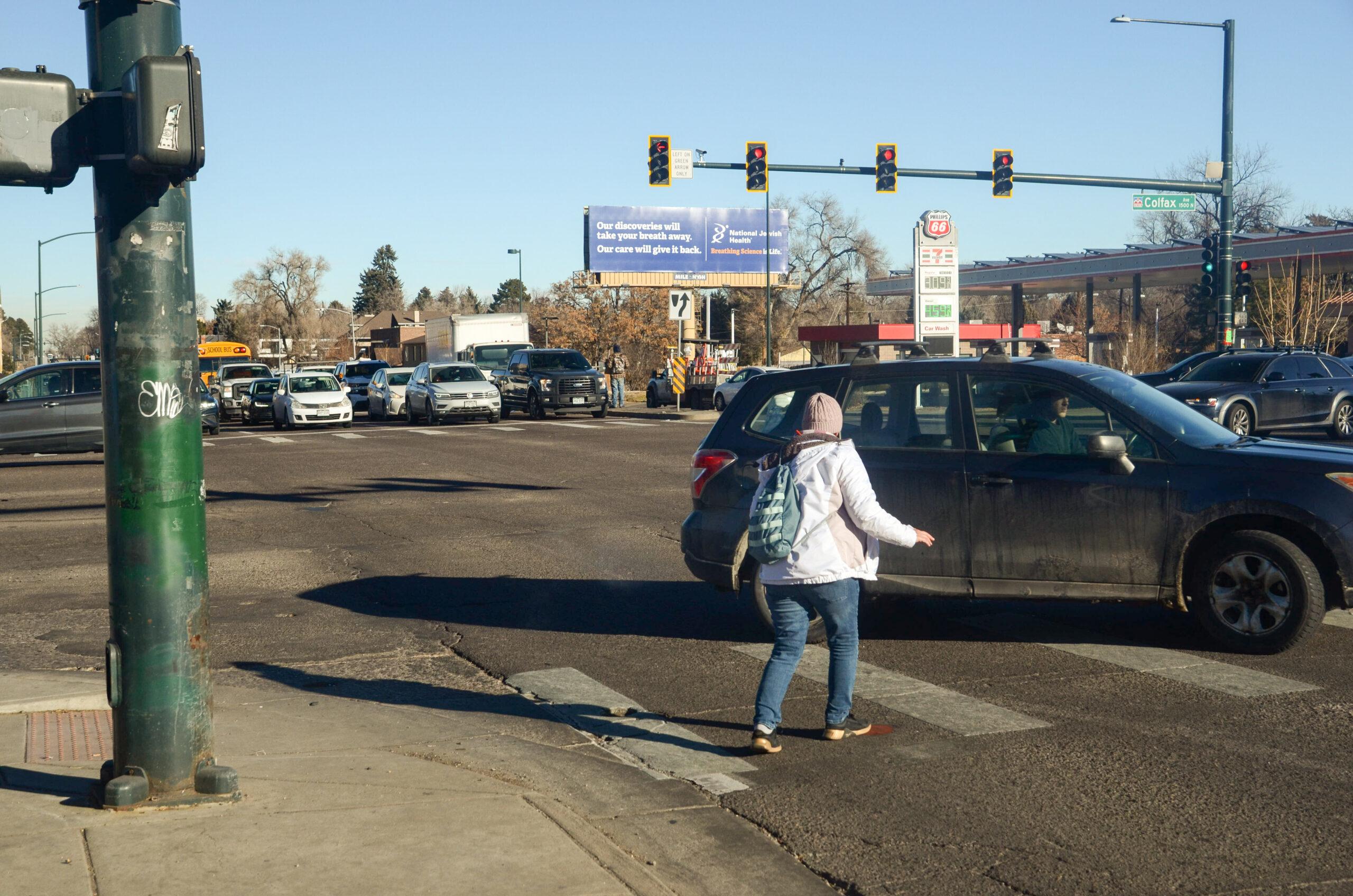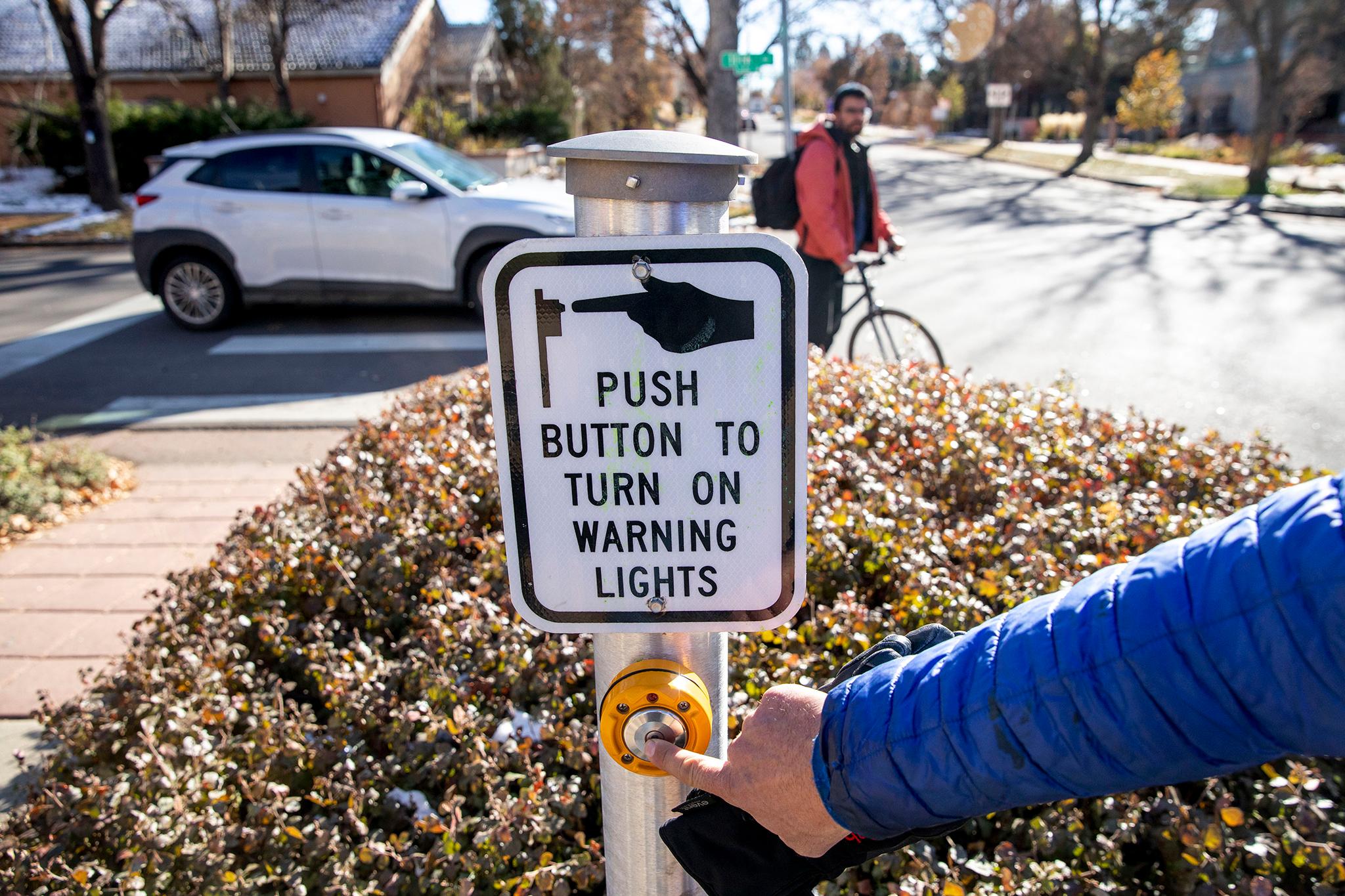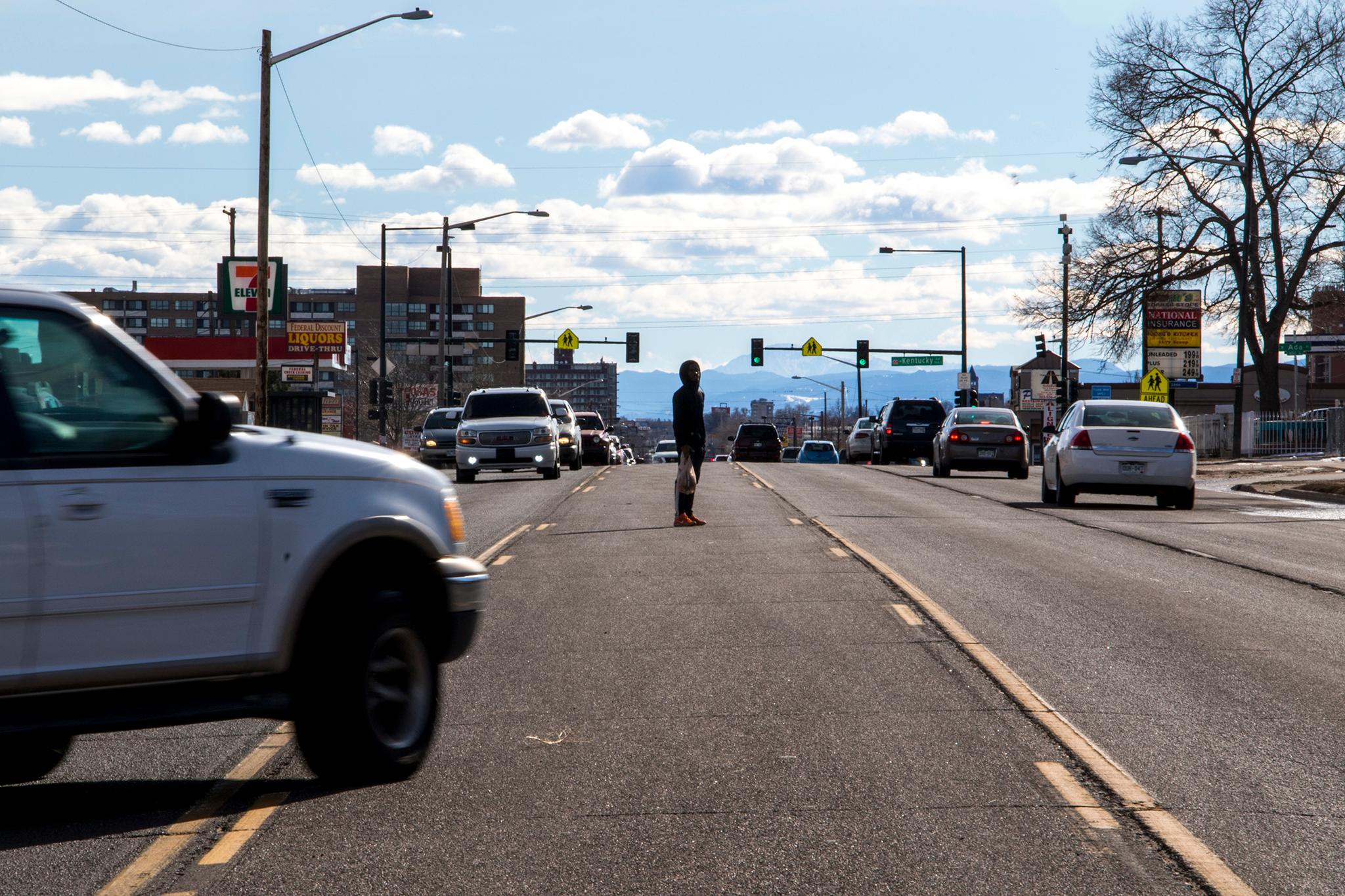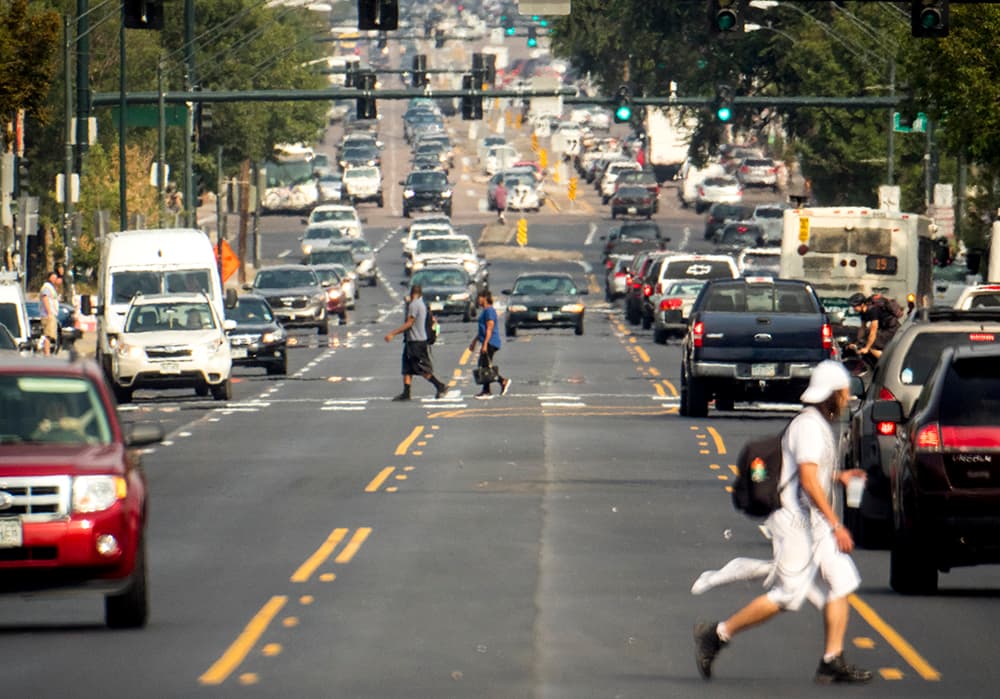Tickets for jaywalking could become a thing of the past in Denver.
City Council is considering a bill to decriminalize jaywalking, with members citing racial disparities ticketing and the inaccessibility of sidewalks across the city. Currently, Denver's jaywalking laws lead to fines between $65 to $95. They never include jail time, but they can lead to court appearances if paired with other citations.
The new bill would align Denver laws with state laws, which have more flexibility in where people can cross between intersections.
It also "replaces criminalization with language that advises safe crossing of roads" and "encourages law enforcement to make enforcing state-level jaywalking laws their lowest priority," according to a presentation by Councilmember Candi CdeBaca on the proposal presented in Council's Land Use, Transportation and Infrastructure Committee Tuesday.
The bill would leave drivers' right of way intact along city streets, but pedestrians and people in wheelchairs would have more legal options when walking along and crossing streets.

CdeBaca pointed to racial disparities in data on jaywalking tickets, compiled from police data and court records, as a driver behind the legislation.
Denver saw 135 jaywalking cases in the past six years. Of those, 25% were given to people experiencing homelessness, and 83% were male. White people were underrepresented, making up 56% of tickets but around 80% of Denver's population, according to census data. Black people make up around 10% of Denver's population, but received 41% of tickets. The data did not include information on Hispanic people or people with disabilities.
The data showed that most citations happened along Denver's "Inverted L," along Colfax Avenue and Federal Boulevard, up to where the two streets meet. Most tickets are given in neighborhoods where people of color are the majority.
Court records examined by Council members also showed that police sometimes used jaywalking tickets as pretextual stops, or reasons to justify adding unrelated charges, a tactic police reform advocates say gives police too much power and can lead to racial injustices.
Because of this, the committee presentation noted that decriminalizing jaywalking would align with one of the recommendations of Denver's Reimagining Policing and Public Safety Task Force, to "minimize unnecessary interaction of law enforcement and the criminal legal system with the community."

Cars would still have the right of way outside crosswalks, meaning that pedestrians would still not be allowed to just step into the street in front of cars whenever they want.
But what the bill would do is give pedestrians the ability to make their own decisions about the safest way to navigate the streets, if sidewalks or crosswalks don't exist or are not the best option.
"We cannot parent our way to safety on our streets, second guessing the judgment of our residents, of adults, who are trying to make their way," said Council President Jamie Torres, a co-sponsor of the bill alongside CdeBaca and Councilmember Jolon Clark.
Jill Locantore, Executive Director of Denver Streets Partnership, talked about how sidewalks can become covered in ice, and how walking in streets or crossing outside crosswalks can sometimes be safer options. Some streets don't have sidewalks, are in bad shape or they lack crosswalks. Locantore recently led the successful ballot measure to raise money to fix Denver's sidewalks through fees on property owners.
"Enforcement cannot correct for dangerous street design," she said. "[We are] coping with our streets as they are designed today, rather than punishing people for making due with a system that has not historically prioritized pedestrians."
Advocates for decriminalizing jaywalking say that serious crashes often happen at intersections and crosswalks, and that it's aggressive car behavior that's responsible for injuries and fatalities, not pedestrians.
Data from Denver's Police Department and Department of Transportation and Infrastructure included in the committee presentation showed that in the last five years, Denver saw 30 fatalities at intersections and 47 not non-intersections. There were 204 serious injuries at intersections and 154 at non-intersections.

While drivers would maintain the right of way, this hasn't always been the case in American cities. Jaywalking laws were invented around 100 years ago.
Before the widespread use of cars, streets were public spaces where people roamed freely, and cars had to move around pedestrians. But in the 1920s, as car use grew, and so did crashes and fatalities. Auto companies lobbied politicians to create traffic laws and PR campaigns that would prioritize cars and shame pedestrians for getting in the way, leading to the creation of jaywalking laws.
Recent efforts nationwide have sought to reclaim streets from cars, and roll back penalties for pedestrians and cyclists. Cities, including Denver, have experimented with "shared streets," which close some streets to most car traffic and open them up to everyone else.
Decriminalizing jaywalking has gained speed nationwide as well, with Kansas City, Virginia and California passing legislation in 2021 and 2022.
Denver advocates spoke in favor of the ordinance, which most of the council members on the committee supported.
"Freedom to move is an essential part of making Denver work for everyone," said Chris Miller, an affordable housing advocate, during the committee meeting. "We live in the shadow of these inequitable decisions made a century ago. It is time to step out from these shadows."
Councilmember Kendra Black pushed back against the proposal and gaps in data on jaywalking. She questioned whether the bill was necessary given that police gave out fewer than 200 tickets since 2017, and expressed worries about reckless behavior from children.
"I just have huge concerns about this sending a dangerous message," she said.
The bill's sponsors countered that despite the small quantity of tickets, the racial disparity in citations prompts action. "We should be weeding out unnecessary regulations... [that] can become foundations for biased enforcement," Torres said.
Following Tuesday's committee presentation, all of City Council will consider the proposal.













